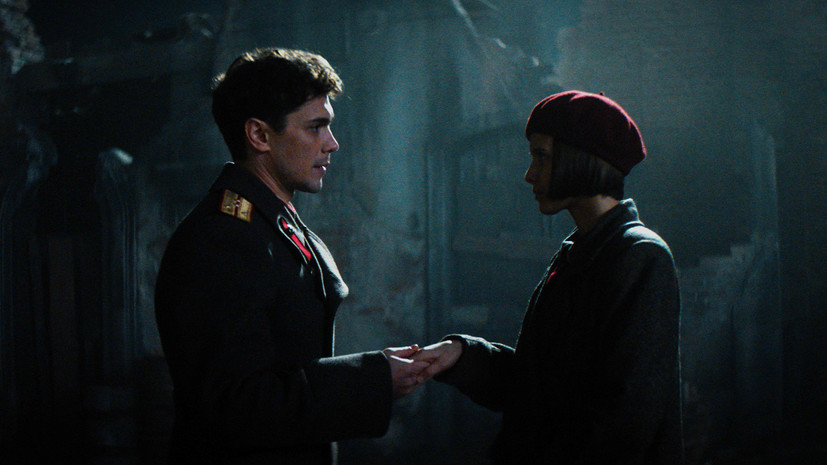On Thursday, March 2, the film "Nuremberg" was released in wide release, which, in addition to real events, was based on Alexander Zvyagintsev's book "Forevermore".
The director and screenwriter was Nikolai Lebedev ("Legend No. 17", "Crew").
As the cinematographer said at a press conference dedicated to the release of the film, Zvyagintsev's book seemed to him suitable material for the film.
“It seemed to me that this is an interesting material as a basis for a story, since this is the view not of a participant in the process, but of a person who, by the will of fate, was drawn into it.
I think that if each of us got at that time and ended up at the Nuremberg trials, he would have just sat somewhere in the gallery and watched what was happening from the side, ”the director thought.
The film starred both Russian and foreign actors.
The main roles were played by Sergey Kempo and Lyubov Aksyonova.
Also in the tape appear Sergey Bezrukov, Evgeny Mironov, Charlotte Harwood, Wolfgang Czerny, Karsten Nörgaard and others.
The action takes place in 1945.
The International Military Tribunal begins its work in Nuremberg.
A huge number of people from different countries, including the USSR, come to the process: lawyers, journalists, photographers, translators and many other participants and witnesses.
Igor Volgin also begs to work there.
He intends to find his brother, whose letters were last sent from Nuremberg.
Igor went through the whole war, he is young and strong, in addition he also knows foreign languages.
Therefore, he becomes an interpreter in the Soviet delegation.
In Nuremberg, Volgin meets a Russian girl, Lena.
Between the characters there is a connection, which subsequently degenerates into strong feelings.
The couple will have to endure trials, face death and danger, but love will help them overcome all hardships.
Nikolai Lebedev said that even while writing the script, he introduced Lyubov Aksyonova as Lena.
This is not the first time the director has worked with Sergey Kempo, so he initially assumed him for the role of Igor Volgin.
The cinematographer noted that the love line in the picture was important to him.
“It seems to me that this is the story of a man who was so burned by the war that he no longer felt anything.
And love brings him back to life.
It was very important for me to see the fragility of these relationships, ineptness, even inconsistency, because these are not heroes-lovers who know how to behave, each of them is squeezed in the grip of fate and situation, and they are absolutely inept - this is touching these relations,” says Lebedev.
© Frame from the film "Nuremberg"/kinopoisk.ru
The film has many storylines that revolve around the Nuremberg Trials.
All events are interconnected and do not stand out from the general history.
However, some lines are revealed rather superficially.
For example, it remains unclear why Hellmuth was obsessed with the mural painted by Volgin's brother.
As for his brother, at first the hero Kempo enthusiastically rushed to Nuremberg in order to search for a loved one, but then it seems that his new acquaintance Lena needs this more than he himself.
Due to the lack of some details, it seems that the film was cut to fit it into two hours.
At the same time, it is clear that the film crew paid a lot of attention to the tribunal.
The director's respect for history and the desire not to distort the events of those years are noticeable.
According to Nikolai Lebedev, while working on the painting, he carefully studied historical facts, archival records and other documents.
The Hall of the Palace of Justice, where Nazi criminals were tried, was recreated at Mosfilm.
The area of the filming space was about 330 square meters.
m. As Sergei Bezrukov, who played the role of the prosecutor-prosecutor Roman Rudenko, noted, he visited the Nuremberg courtroom and, finding himself on the set, realized how much the team made him similar to the original.
Many details and scenes from real history have also been painstakingly recreated by the team.
For example, the location of the prisoners in the dock, the cartoonist in the hall, evidence of the atrocities of the Nazis (the dried head of a prisoner of the Auschwitz camp, lampshades and bags made of human skin), as well as the death of Robert Ley, the head of the German Labor Front, which occurred in the cell before the start of the proceedings.
The artists were selected so that they were similar to real prototypes - this is easy to see by looking at the photographs of the real defendants.
According to Bezrukov, during the filming, he had the feeling that he was actually present at the Nuremberg trials.
An important part of the film was the music written especially for him by the Russian composer Eduard Artemyev.
Stunning compositions sound throughout the tape and help to feel some moments deeper.
In addition, the film has several spectacular scenes of explosions and fights using slow motion, which cannot but add tragedy and grandeur at the same time, especially in combination with the soundtrack.
Artemiev died on December 29, 2022, without having attended the premiere, and Nikolai Lebedev dedicated the entire picture to the memory of the composer.
Special mention deserves the director's desire to emphasize the chemistry of communication between the main characters, focusing on the details.
The film recalls an important moment in history - the first International Military Tribunal - as well as the horrors that humanity had to face during the Second World War.
An important message of the picture is that love can really change a person, give strength and incentives to fight, as well as give peace of mind and hope for a better future.

